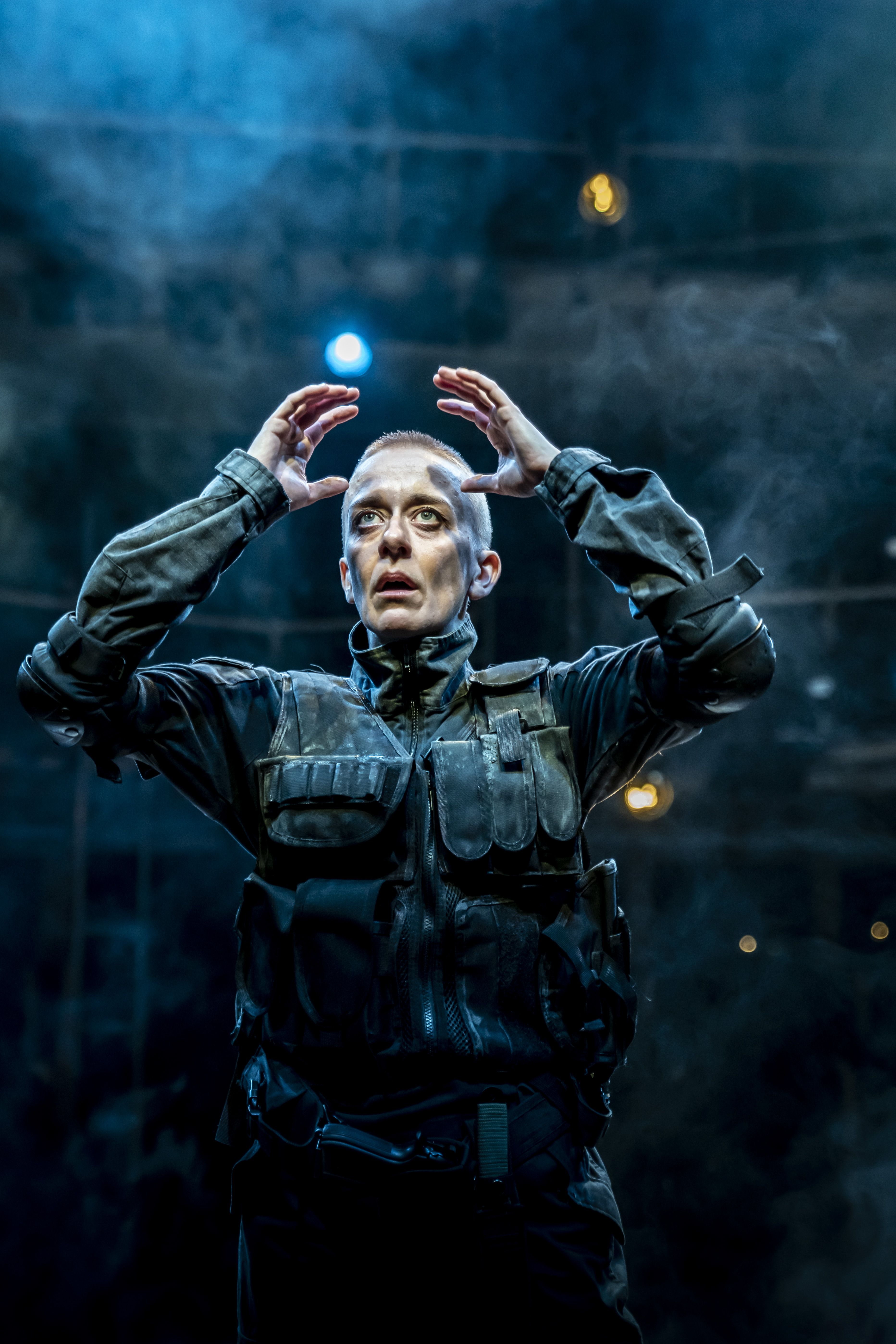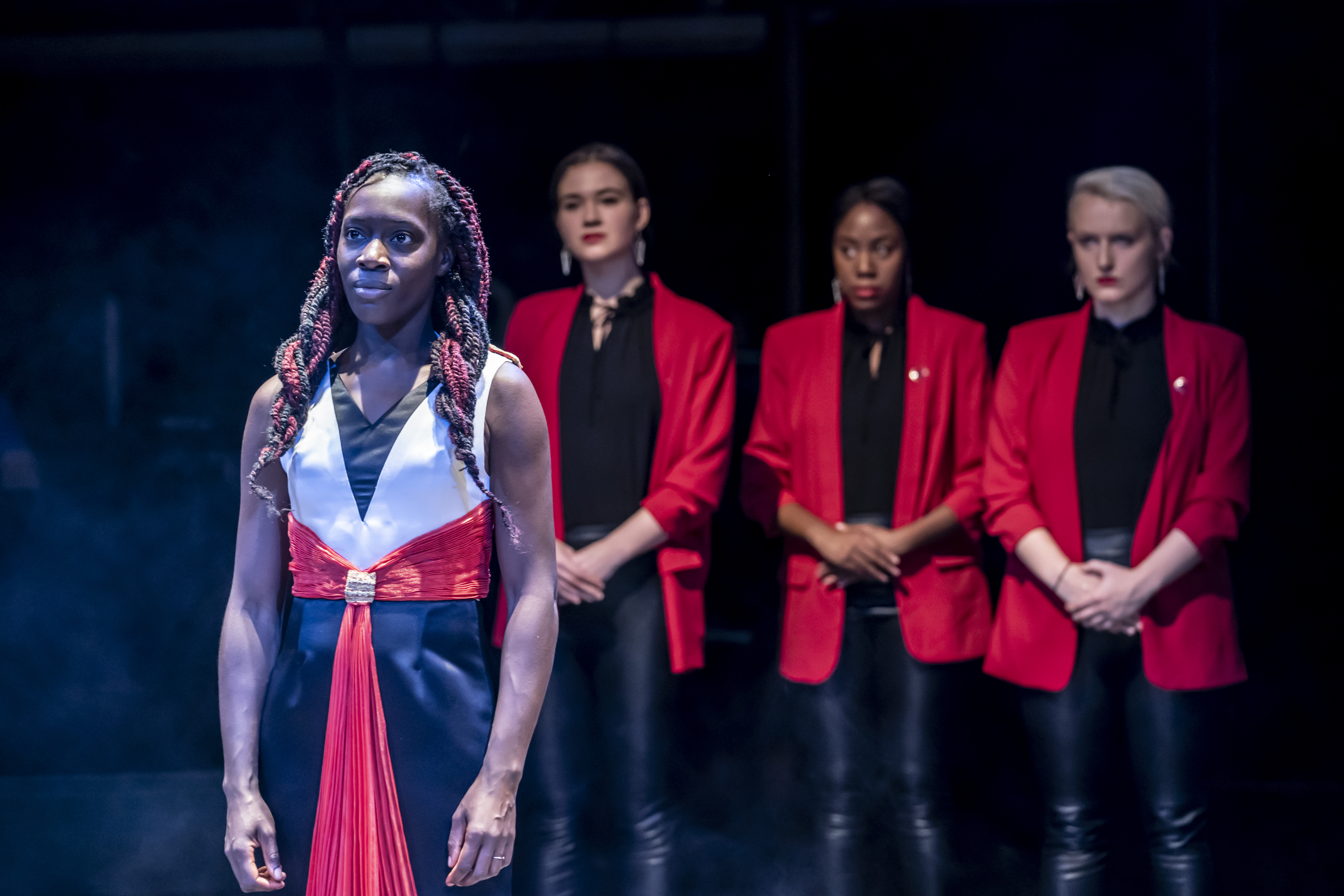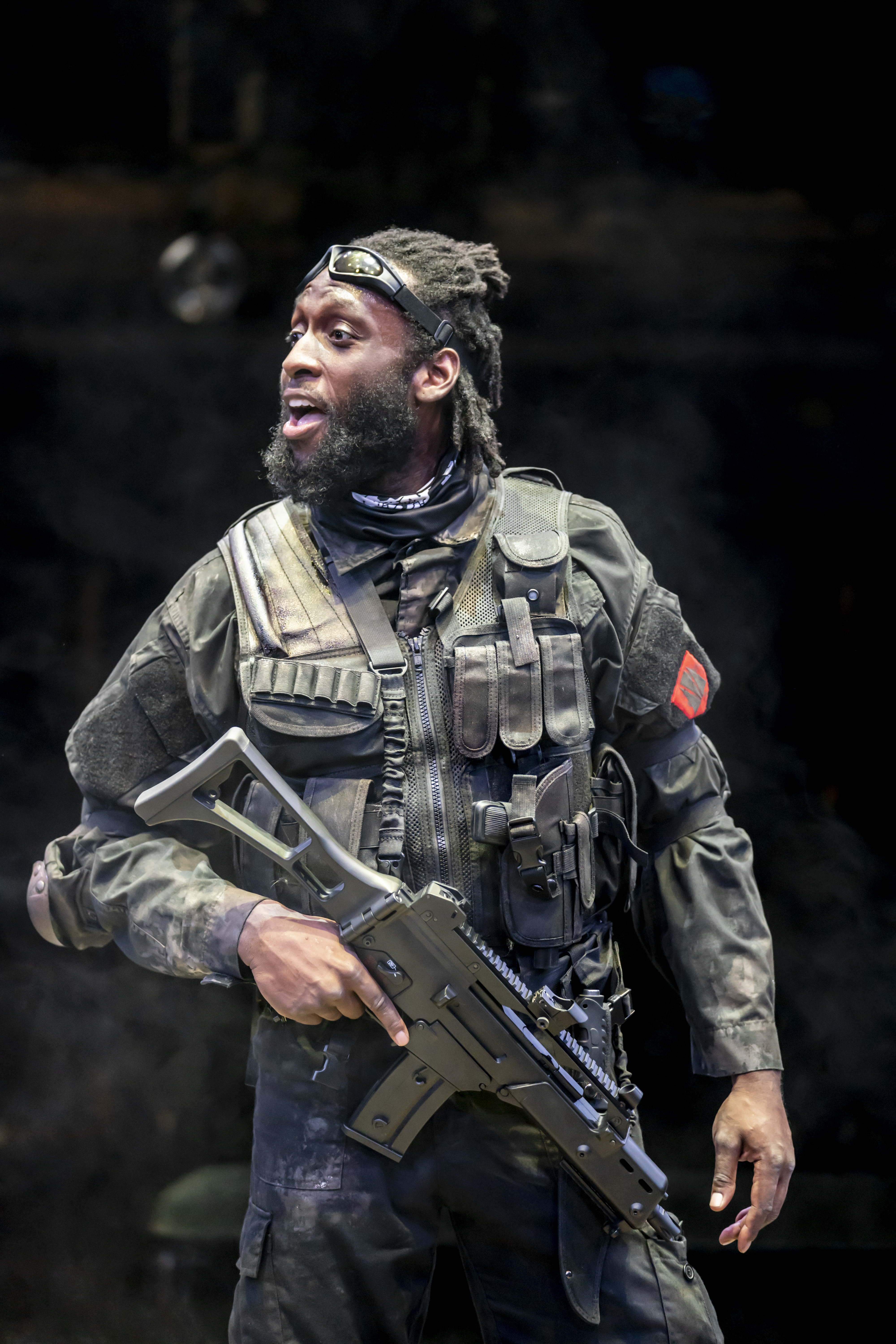I grew up in Shakespeare’s Country (Stratford-upon-Avon to be precise) so I should be used to The Bard going on a bit. I’ll never forget emerging from the Swan Theatre after a four-hour Royal Shakespeare Company production of King Lear, blinking like I’d not seen daylight in years, and my dad saying “good grief, you look pale”.
So I’m not entirely sure why I thought the Royal Exchange’s latest take on Macbeth would be any different – or shorter. At almost three hours (with a 20-minute interval) it’s hard going. The first part is almost an hour and a half long, and I resorted to clock-watching during the last 20 minutes, wondering when we were going to break. I also forgot that The Scottish Play is the one where pretty much everyone dies, a fact that director Christopher Haydon focuses on by adding in extra gore and disturbing scenes. While certainly not gratuitous (it’s even more poignant for the violence) there are some shocking moments so, if you’re a bit of wimp like me, be warned.
Time-management aside, I enjoyed Haydon’s adaptation and while gender-flipping the titular role is not a new thing, this is the first mixed-gender production to cast a woman as Macbeth. While it could come across gimmicky and maybe a little confusing, I enjoyed Lucy Ellinson’s warrior woman-esque Macbeth, and a female Duncan played by Alexandra Mathie also offered a fresh perspective into an antiquated character.
Throughout history, women who commit murder have been viewed with fascination because violence is often seen as something overtly masculine. By reversing genders, new ideas about the masculinity of war, power and ambition are formed and our preconceived judgements are called into question.
 Ellinson is mesmerising as the war hero driven mad by her own ambitions (and those of her ruthless wife) and she commands the stage with authority. But I was far more captivated by her performance during the first half, particularly during the triumphant banquet scene, than in the second. That’s not to say she wasn’t engaging as the central tragic hero, but her demise was overshadowed by a wonderful outpouring of grief from Paul Hickey’s Macduff. My eyes were firmly on Hickey during the final scenes meaning that Ellinson’s Macbeth was secondary – a real shame.
Ellinson is mesmerising as the war hero driven mad by her own ambitions (and those of her ruthless wife) and she commands the stage with authority. But I was far more captivated by her performance during the first half, particularly during the triumphant banquet scene, than in the second. That’s not to say she wasn’t engaging as the central tragic hero, but her demise was overshadowed by a wonderful outpouring of grief from Paul Hickey’s Macduff. My eyes were firmly on Hickey during the final scenes meaning that Ellinson’s Macbeth was secondary – a real shame.
Other noteworthy performances were Theo Ogundipe as Banquo, particularly as the spectre who haunts Macbeth, and Nima Taleghani who shone as a thoroughly modern Lennox. Bryony Davies, Nicola May-Taylor and Charlotte Merriam also gave strong performances as the Weird Sisters, bringing the toil and trouble with an air of death metal and revelry about them.
The staging at the Exchange is always on point and the atmosphere was created long before setting foot in the round. Loud noises were audible from the theatre bar. “Is this part of the play?” asked my pal as we waited for the bell to signal the start. “Is that thunder? Is this going to be immersive?”
I wasn’t sure. “Maybe it’s the wheels of something on set being pushed around?”
Cue my embarrassment when we take our seats and there’s a swirling stream of smoke leading to a grated pool (or cauldron) in the centre of the floor and the play begins with a deafening storm (the sounds we heard earlier were cracks of thunder, obviously) as soldiers storm the stage.
Setting the play in the more familiar terrain of modern combat is a clever move. As viewers, we’re used to seeing women (in television, on the news) in military roles, so it doesn’t seem out of context that Macbeth is female. And while pronouns are altered to reflect these new roles, the word ‘man’ is left in Lady Macbeth’s famous speech. When she urges her wife to “be so much more the man” it opens up questions about gender and violence and the differences, if any, between the sexes.
I’m still thinking about the answers.



Main image: Lucy Ellinson, Macbeth. Image by Johan Persson.
Macbeth is showing at Manchester’s Royal Exchange until October 19, 2019. For more information, or to book tickets, click here.






